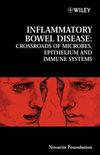HDAC7 regulates apoptosis in developing thymocytes.
引用次数: 16
Abstract
Central immune tolerance is established in the thymus for T cells via a complex selection process that involves interactions between CD4+CD8+ double-positive thymocytes and antigen-presenting cells. Cells that express antigen receptors interacting strongly with self peptide MHC complexes are deleted from the repertoire via activation-induced apoptosis, a process termed negative selection. Cells that express an appropriate signal are positively selected and mature into single positive naïve T cells, either CD4 or CD8 positive. The balance between positive and negative selection is thought to play a critical role in the elimination of self-reactive clones and in the establishment of central immune tolerance. We have recently reported that HDAC7, a class II histone deacetylase, is highly expressed in CD4+CD8+ double positive thymocytes. HDAC7 inhibits Nur77 expression, an orphan receptor involved in antigen-induced cell death and in negative selection. The inhibitory effect of HDAC7 on the Nur77 promoter is mediated via the transcription factor MEF2D. During T cell receptor activation, HDAC7 is exported from the nucleus leading to the derepression of Nur77 expression and the induction of apoptosis. These observations define HDAC7 as a regulator of Nur77 and apoptosis in developing thymocytes and indicate that HDAC7 is likely to play an important role in the control of central immune tolerance.HDAC7调控发育中的胸腺细胞凋亡。
胸腺对T细胞的中枢免疫耐受是通过一个复杂的选择过程建立起来的,该过程涉及CD4+CD8+双阳性胸腺细胞和抗原提呈细胞之间的相互作用。表达抗原受体与自肽MHC复合物强烈相互作用的细胞通过激活诱导的凋亡从库中删除,这一过程称为负选择。表达适当信号的细胞被积极选择并成熟为单个阳性naïve T细胞,CD4或CD8阳性。正选择和负选择之间的平衡被认为在消除自我反应性克隆和建立中枢免疫耐受中起着关键作用。我们最近报道了HDAC7,一种II类组蛋白去乙酰化酶,在CD4+CD8+双阳性胸腺细胞中高度表达。HDAC7抑制Nur77的表达,Nur77是一种孤儿受体,参与抗原诱导的细胞死亡和负选择。HDAC7对Nur77启动子的抑制作用是通过转录因子MEF2D介导的。在T细胞受体激活过程中,HDAC7从细胞核中输出,导致Nur77表达降低,诱导细胞凋亡。这些观察结果将HDAC7定义为发育中的胸腺细胞Nur77和凋亡的调节因子,并表明HDAC7可能在控制中枢免疫耐受中发挥重要作用。
本文章由计算机程序翻译,如有差异,请以英文原文为准。
求助全文
约1分钟内获得全文
求助全文

 求助内容:
求助内容: 应助结果提醒方式:
应助结果提醒方式:


